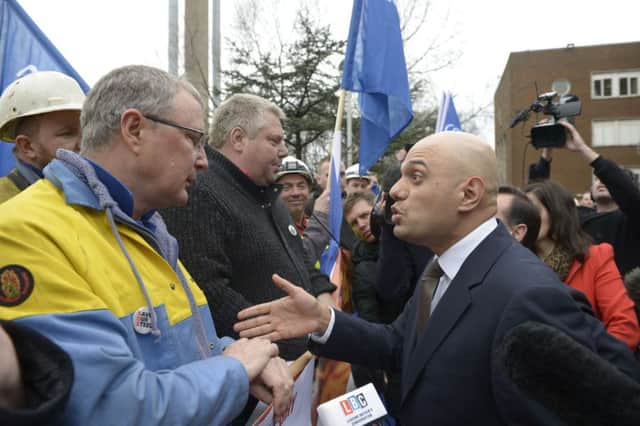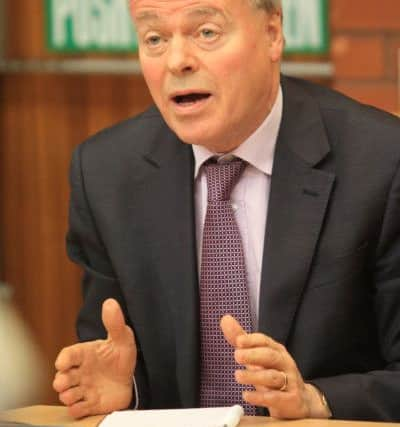Government takeover of Tata still possible


Mr Javid told the All Party Parliamentary Group on Steel that he didn’t see nationalisation as a solution.
But Sheffield MP Clive Betts said neither did he rule it out as a temporary measure.


Advertisement
Hide AdAdvertisement
Hide AdTata has put its loss-making UK operations up for sale. The business employs 15,000 including more than 2,000 in South Yorkshire.
Grey Bull Capital has agreed to buy its Long Products division based in Scunthorpe after nine months of negotiations.
Mr Betts said the APPG was keen for government to introduce policies that would make Tata’s operations attractive to buyers.
He added: “Any potential buyer is going to need help, you can’t make a go of it in the current circumstances. Mr Javid acknowledged the steel industry is fundamental to the welfare of the economy and strategically important for our defence.


Advertisement
Hide AdAdvertisement
Hide Ad“But we didn’t get any new policy commitments that would attract a buyer. He agreed that we need to save the industry but he didn’t have any positive steps beyond its current position.
“I would hope he has gone away to work out a position but he hasn’t got that far yet.
“We pushed him very hard on dumping, he said it wasn’t just the UK which had doubts about tackling the problem, Germany did too.
“We spoke about energy costs, which are 89 per cent higher than in Germany, but he made no promises. On high business rates he recognised the problem but didn’t offer a solution
Advertisement
Hide AdAdvertisement
Hide Ad“We are keeping the pressure on, trying to get the message across that UK industry is burdened by costs other countries don’t have.
“I know there are worldwide problems with oversupply, but the government can do more on certain issues including energy and business rates.”